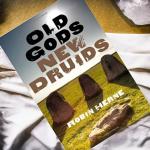Christian trauma is uniquely experienced by each person who chooses to leave Christianity. Some may experience devastating amounts of trauma while others can simply allow the past to be the past. Most of us lie somewhere in the middle, this gray area that leaves us riddled with questions about how to progress. I am fortunate enough to be in a position that allows me to openly express my identity and to be myself. While I won’t have all of the answers, I do have solid insight. My hope is that this article might serve as a way to help someone out there who may have questions like I did and to offer some guidance. I assure you that life does get better after we face our demons head first and there is no shame in needing assistance.
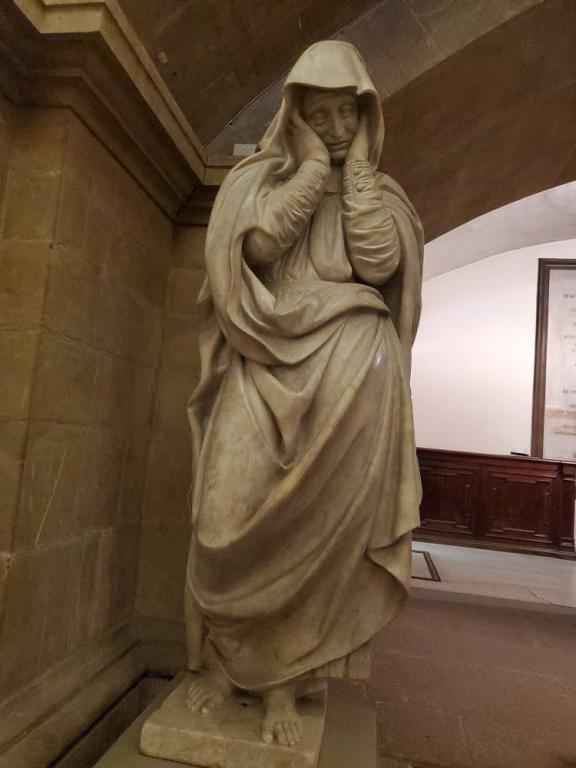
My Childhood Experience
Have you met an Irish Catholic before? If not, buckle up and read about some of the traditions, culture, and views. I grew up in Salt Lake City, Utah as an Irish Catholic surrounded by Mormons. Spotting another Catholic was like finding a unicorn and then keeping them as your friend for as long as school would allow. Most of the time I would encounter Catholics who were from Mexico, South America, or Puerto Rico. We found our differences in practice to be hilarious. Take for example the fact that most Irish Catholics wear Pagan symbols and talk about fairies. My Hispanic and Latin American friends had a reverence for the dead that can only be described as otherworldly, to me.
My experiences as a Catholic were not all bad and I attribute that to being a minority religion in Utah. I had to face discrimination at a very young age and watched as religion tore at communities and my own parents. This needless fighting only lead to philosophical questions that were handled by our parish priest. My grandma would host him and allow me to ask anything I wanted and allow me to debate with our priest. Most people don’t look at Catholicism and think about open debate and questioning but around Patricia’s table it was very much alive. From my grandma’s kitchen table I would approach topics like: abortion, original sin, being gay, death, the trinity, and eventually appropriation and integration (forced or not).
I was deeply connected to my community and served as an altar boy, CCD assistant, and made it all the way to confirmation. I still feel comfort when I smell frankincense and myrrh burning on a charcoal. My exit from Catholicism wasn’t with a boom or dramatic in any way. My exit was just as open as most of my other experiences. The very last service I attended as a practicing Catholic was at the age of 14. I had already been initiated into a Pagan practice for over a year and knew I was only in the pew because of my grandmother. She understood that my happiness was beyond the walls of St. Peter & Paul and supported my exploration of faith. Though she understood the necessary exploration, my parents weren’t quite as supportive. It was their reaction that lead to a sonic boom shaking my life.
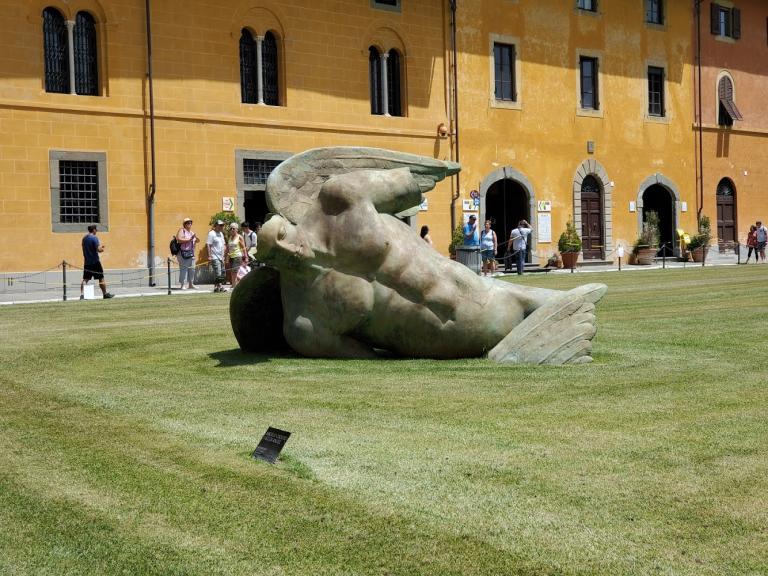
Coming Out of the Broom Closet and Into the Pantry
As mentioned above, by the age of 14 I was already initiated into a local Wiccan group, and I was ready to leave Christianity. To say that my experience coming out of the broom closet was hard would be a laughable understatement. To say that it included a priest, holy water, abuse, and threats would be a lot more accurate. Culturally, my parents were prime targets for fear mongering during the satanic panic and they took the fear to heart. Anything to do with witches, other gods, or metaphysics was cause for worry.
Coming out as Pagan brought out anger from my parents and I was the sole target for their woes. Initially, my parents would restrict me from visiting with friends who were suspected of being Pagan. Then it progressed to throwing out items that looked Pagan and taking me to therapy (the therapy was helpful for other reasons. Take the good where you can!). Finally, it turned into full-out madness by the time I was 16. During class I was asked to come to the main office and was checked out of school by my mother. She took me to see a priest and I was sprinkled with holy water and a few prayers were said. I’m not sure if this was a full on exorcism or just a desperate attempt to save the soul of her child. I suppose my mother should get an A+ for theatrics.
After the event with a priest I was thoroughly traumatized. Nothing feels worse than being humiliated for having a perfectly healthy spiritual belief. Being abused mentally and physically does something to a person that never really gets rooted out. This is the stuff that feeds a cycle that is hard to stop. It led to my open rebellion against my parents. I wouldn’t and couldn’t stop being Pagan!
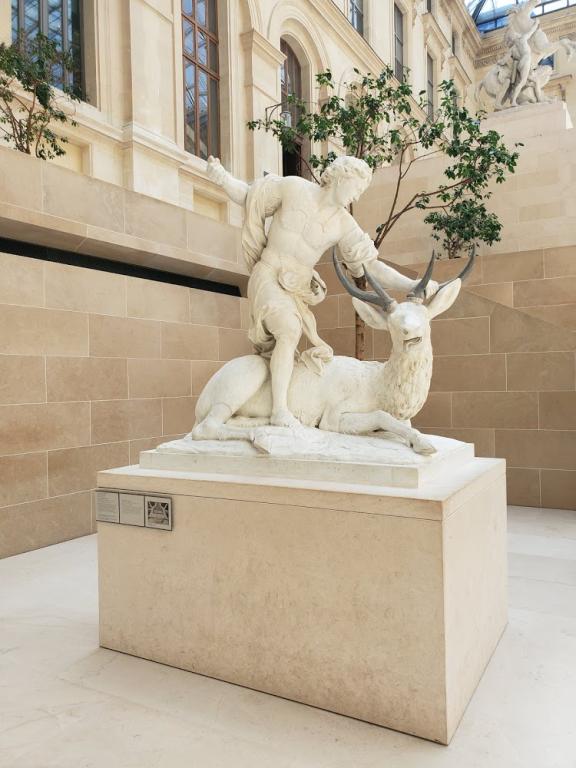
The way I dealt with going from the closet to the pantry was handled by various methods. First, I would go to public rituals and events while trying to make it home by a reasonable time. Second, if I wanted to practice or perform a ritual it had to be done in a park or field. The final solution I came up with was connecting to my spirituality via meditation. I couldn’t have the fancy tools or a journal without it being destroyed. So I kept my spirituality between me and the divine until I was able to openly practice without the eyes or hands of my parents.
I grew up facing discrimination face to face and knew how to navigate the world like a hostile lunch room. You can usually spot the people who are there to help you and they are out there. Without the helping hands from leaders, shops, and groups in my area, I might have left the Pagan path years ago. I don’t recommend using discrimination or abuse as a means to strengthen a person’s character. Those of us who have lived it and survived it will bear the scars for life.
Yahweh or No-way
I once heard a joke that said, “Any God that asks an old man to sit in the desert and cut skin from his privates is not the God for me.” Yes, we started this section running right out of the gate and into the fire. Yahweh was not introduced to me in the same way he was introduced to my Jewish friends. Though equally filled with damnation, brimstone, and fear, I also had the compounded issue of a trinity. Explaining the trinity to a child, asking them to believe in it, and then trying to explain it as an adult still doesn’t compute.
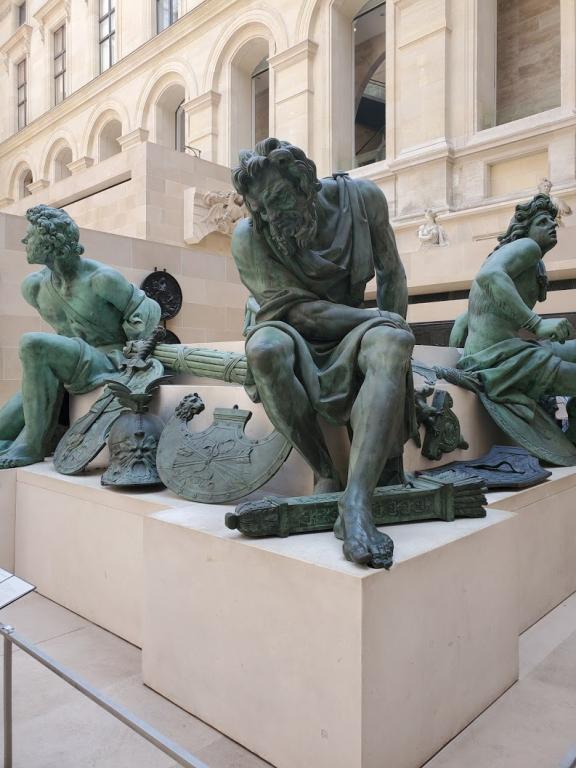
The trinity (Father, Son, and Holy Spirit) were the first doubts I had in my Catholic faith. I was then thrown into catechism and exposed to biblical stories that are not child friendly. How is an all loving, omnipotent, and omnipresent deity causing so much chaos? My young mind and adult mind could not / cannot see the connection between biblical approved slavery, abuse, slaughter, and a man in the sky who loved me.
It might have been the conditions around Yahweh’s love or maybe it was Yahweh’s history with humanity but I said no way to Yahweh. The desire to connect with a higher power remained and I believed there had to be another way to experience the divine. Monotheism is a fine view and comes with plenty of perks. However, if monotheism isn’t how you connect with the divine, there are other ways. Learning about theology and the various ideas around the divine can be exciting and overwhelming.
In my own research I began to realize that even though I was raised Catholic I didn’t truly understand Christian cosmology or theology. At the root of Christianity and Abrahamic faiths we can glimpse into the creation of these faiths and find that they were part of a wider Polytheist world. Yahweh commands that no other gods shall be worshiped before him and ancient Jewish scripts speak about the wife of God, his beloved Asherah. This was some mind-blowing research that rattled the monotheism out of me.
Breaking my mind free from the confinement of monotheism took longer than any other trauma I faced. I still struggle with hard polytheism vs soft polytheism and the idea that maybe it all came from one great unknowable divine spirit. Though it has been the most challenging area, it is the most rewarding. Through these struggles I have read mythologies, been to numerous exhibits, visited ancient shrines, and truly immersed myself into the world of the sacred. So if you have struggled with monotheism, try to see what it has brought you when you reach for a book or exercise with alternative views. You may just find that your doubts have led to a great adventure.
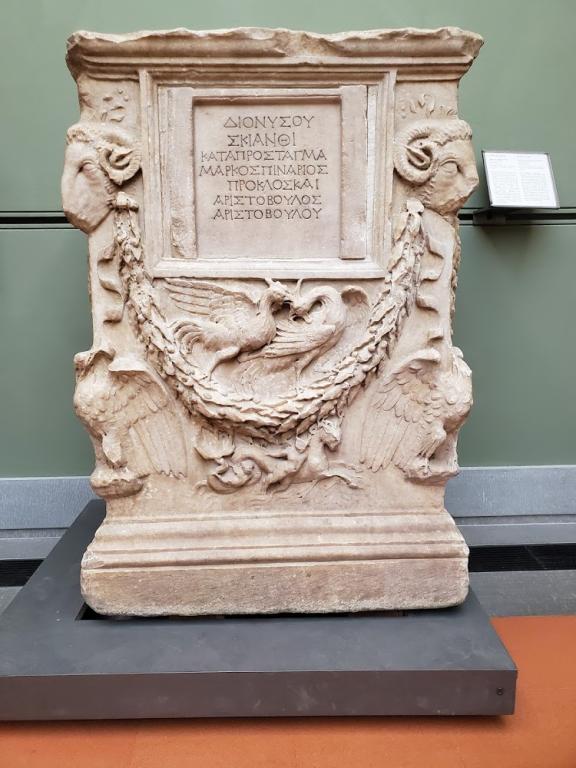
Sex and Candy
I probably don’t need to say this but I am going to anyway. Sex has a heavy stigma within Christianity and desire can be a tool to control the masses. Our basic instincts as a species become a stain on the immortal soul and the acts of love, creation, or desire are deemed filthy. It is no wonder that after years of being shamed it can take some serious reevaluation to unlearn these views. Add the dark and layered history of LGBTQ+ people in Christianity and you likely have some pretty heavy baggage.
After leaving Christianity I was introduced to free-thinkers that viewed sex openly and with healthy boundaries. Obviously, you’re going to find problematic people in every community but that isn’t what this section is about. This is about facing the fact that Christianity taught us that our bodies were not for pleasure, not beautiful, and that natural expressions of love are being condemned. Unpack that last sentence for a moment and see if there are areas that may have made you cringed. Do you feel confident in discussing your desires with a consensual partner? If not, why might that be?
If, like me, you went from a religion that suppresses sex to a religion that uses sex to metaphorically describe the changing seasons, there can be culture shock. Overcoming this shock of sex wasn’t extremely difficult for me but facing my own body was hard work. I think that there was a certain amount of liberation that came with accepting the fact that most people will have sex, crave sex, or have opinions about sex. The area where I struggled to find confidence was looking at my own body and accepting it as worthy of attraction or desire.
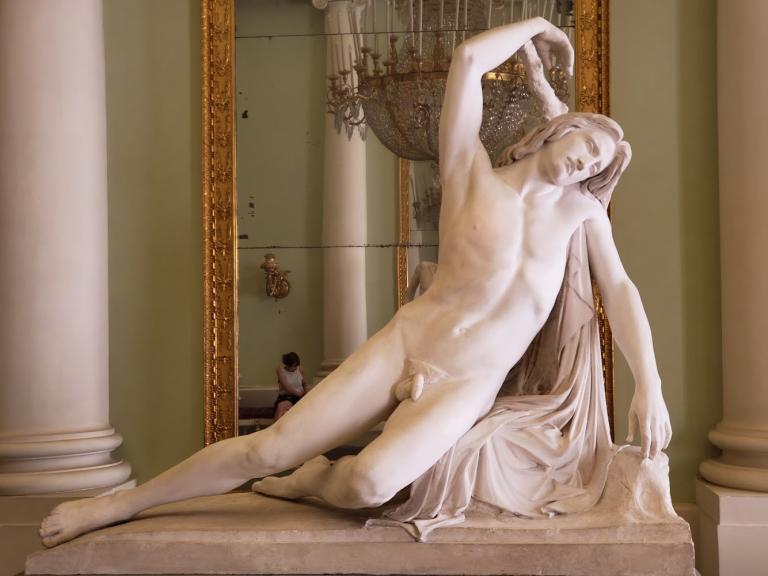
Overcoming the blockages regarding my body is an on again off again battle. Talking with other people about the struggle has helped a lot. There is something revealing about realizing most people do not like their body (even the picturesque people). Another aid in the battle has been exercise and that isn’t limited to the gym only. Exercise as in hiking, kayaking, or just walking around nature can be extremely healing. I had to learn to celebrate what my body is capable of doing instead of viewing tasks as punishment meant to help me conform to society’s standards.
Breaking down the trauma around sex and our bodies is hands down the most difficult topic in this article. Not only does sex govern topics around our orientation but it relates to how we view ourselves. Stripping the teachings that prevented us from seeing the beautiful individuals we are is our constant fight in life. These bodies get sick, have pain, age, and they decay. However, these bodies are all we have to sense the world around us. We get to feel the comfort of a hug, the astonishment in climbing a mountain, the joy from eating good food, and we should appreciate our bodies. These conduits of love.
Death is Only the Beginning
I linked this section next to sex because I ended with the notion that we need to love our bodies, these glorious conduits of love. Indeed, we do need to learn to love our form in this world but we cannot be attached to them. Why not? Well, because you’re going to die. In most forms of Christianity there is a belief in a permanent self that continues on after we die. The soul takes on a familiar form and we are embraced by the closeness with God, sit in the emptiness of purgatory, or burn in the brimstone pits of hell.
I don’t buy into any part of this scenario. Let’s take out the fact that purgatory was a later addition to Christianity and we can turn the fire hydrant onto the fires of hell. We are left with this idea that something is permanent and never changing; we are left with the idea of a soul. This is the part I care most to examine and learn about because I don’t believe we have a soul as described by Christianity.
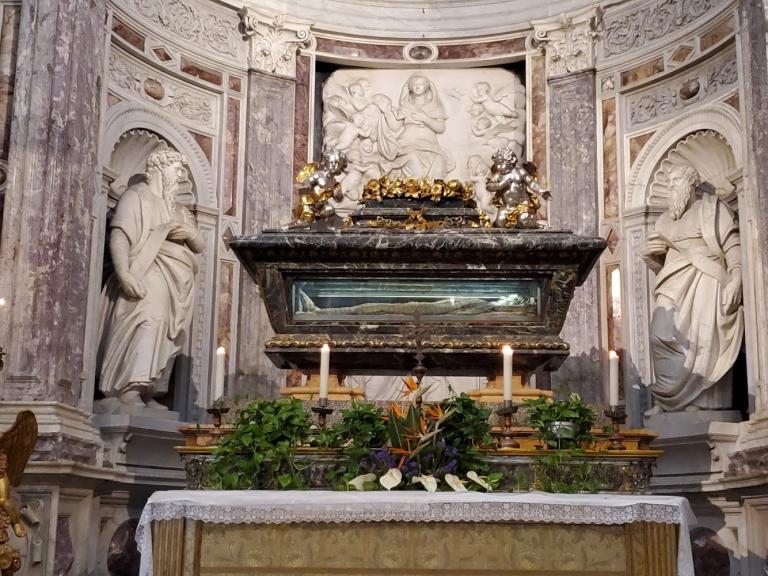
Buddhism supplied me with the closest thing I could think of when it comes to postmortem progression. I accept that death is inevitable and that my senses as I know them will be gone. However, I also believe that consciousness makes us unique and that consciousness continues in some way. This could be seen as a form of reincarnation or just continuation. The details are beyond me and I wish I could tell you exactly what will happen. Sadly, anyone who knows is dead and they can’t tell us what happens next.
The glorious part about being Pagan is that my belief is perfectly acceptable and so is the idea that we are reincarnated. Nothing is out of the question because nothing can be definitively proven. Our beliefs serve to comfort us as we face one of the largest changes in our life (birth, life, and death are the biggies). Christianity tried to harness the unknown, create fear, and make up an afterlife that was meant to keep me in line. I have my doubts about this method but even if I do end up in hell, at least I lived to experience life fully.
One Thing I Miss
Not every aspect of Christianity is negative, right? There are certainly items I miss and when narrowed down I find that the root is community. There is a strong sense of community within Christianity that we cannot find in Paganism. I don’t say this to diminish the efforts of covens, groups, and people who sacrifice time to create community. I think that most of us can step back and acknowledge that when it comes to community, Christianity has this firmly in check.
Pagans oftentimes do not feel the same need for large and constant community. I also do not think it would be entirely feasible to replicate the systems Christianity uses. To do so would require orthodox structure in rituals and centralized writings, which is entirely contradictory to Paganism’s freedoms. Despite all of this, I admit that I miss having a community around me. It can feel entirely magical when you are synced with practitioners in prayer or actions. We can find this within our covens and groups but not in the same numbers.
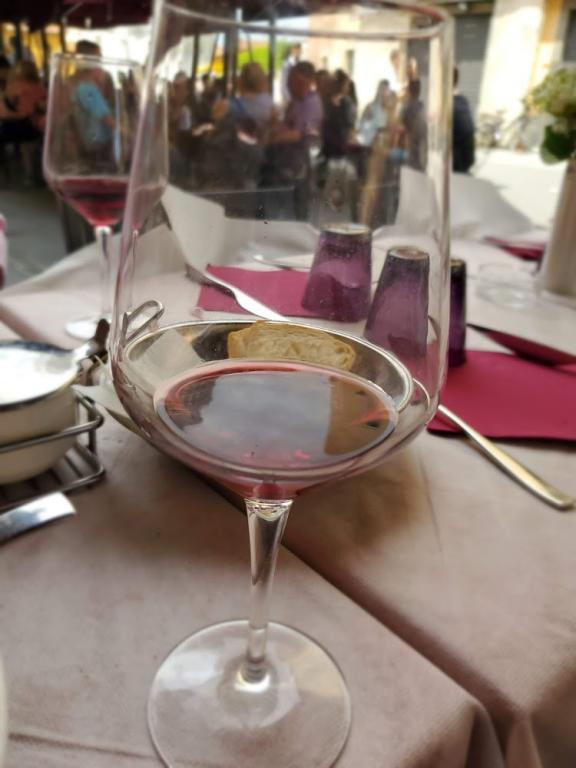
Although I miss feeling like there is a sense of community, I wouldn’t trade the way Pagans handle faith. Looking to the future I would love to see more centers of worship for Pagans and large events. It is pure kismet when we see other Pagans at events and there is no need to explain who we are and how we worship. I believe that Pagan store owners, group leaders, and many other individuals are working hard to help create communities. If more of us are able to give just a bit toward these efforts, I think we could build something astounding!
Final Thoughts
Not every person who practices Christianity is going to have trauma and not everyone who remains Christian is intolerant. Currently, I have seen a greater effort from Christians attempting to understand other faiths. Many people have listened to my experiences and shown sincere sympathy. None of us are born with hate, which is a learned behavior and can be unlearned. Though it is too late to take back what happened to some of us, we can still help others avoid trauma.
We learn to live with the pain caused by trauma and some of us try to transform our experience into a form of aid. My story has plenty of baggage but I am fortunate to have made it through to a better place. Unfortunately, there are people who have to hide in fear and may never have the opportunity to practice their beliefs openly. If you are reading this and empathize; you are not alone.
I want to see the Pagan community grow in a way that helps people who are struggling. We have a knack for borrowing from other religions. If we could borrow from Christianity it should include outreach programs, community, and support. We are a boisterous group of people and mostly debating each other’s opinions. All of that is healthy and wonderful until it gets in the way of progress. Religious trauma lasts years and we need to be united in our efforts to help individuals leaving a faith that created trauma.



